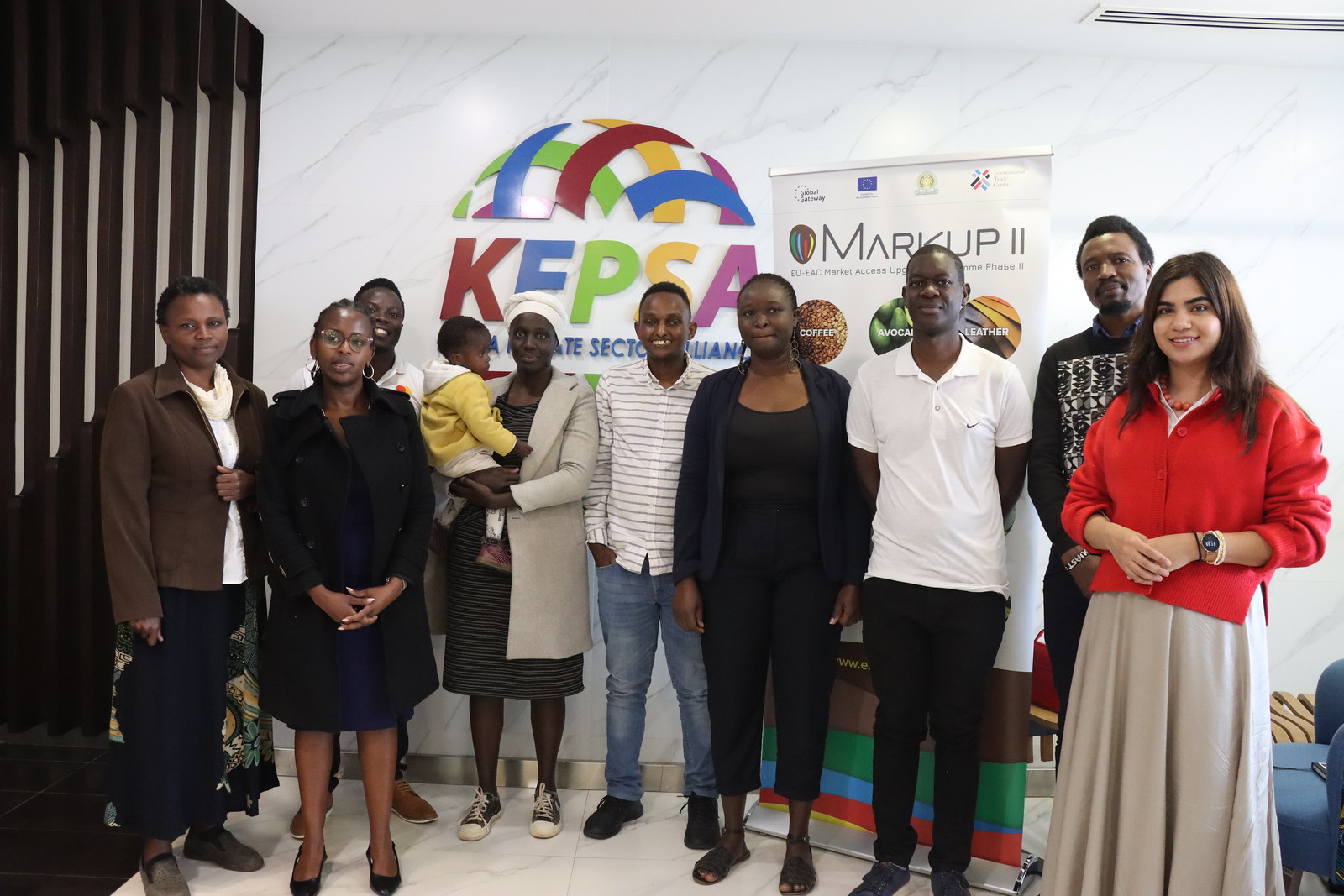The Small and Medium-Sized Enterprises (SMEs) and Micro, Small and Medium-sized Enterprises (MSMEs) in the Coffee, service industry and Leather industries received training on the E-commercial skills and Non-Tariff Measures (NTMs) training courtesy of the partnership between the Kenya Private Sector Alliance(KEPSA) and the ITC’s EU-EAC MARKUP II Program.
The training program which took place at the KESPA offices was designed to improve livelihoods, create employment opportunities, and enhance export competitiveness for MSMEs and SMEs within select value chains.
It also supports businesses in strengthening brand visibility and navigating trade barriers.
By promoting value addition, diversification, and access to regional and international markets, the program aims to boost the export readiness and competitiveness of MSMEs.
The training session focused on Non-Tariff Measures (NTMs), and was facilitated by Levi Injendi, Trade and Investment Officer at KEPSA who highlighted that while tariffs are often the focus of trade discussions, non-tariff measures, such as regulations, standards, and procedural requirements, pose equally significant challenges to businesses.
ALSO READ:
He added that these measures can affect the cost, timing, and feasibility of exporting or importing goods, especially for SMEs that may lack the resources to navigate complex compliance landscapes. “Understanding NTMs is no longer optional, it’s essential for any business looking to scale beyond borders,” he said. He further emphasized that NTMs are increasingly shaping global trade dynamics and that SMEs must be equipped to respond strategically.
He went further to share that NTMs are not just theoretical; they have real-world implications for Kenyan businesses. “For example, a food exporter may face strict hygiene standards in the EU, while a textile manufacturer might struggle with labelling requirements in the U.S.” he said.
The challenges he maintained that can delay shipments, increase costs, or even block market entry altogether. “The main obstacles to intra-African trade are linked to export measures,” Injendi noted, pointing out that many SMEs and MSMEs lack access to information, infrastructure, and capacity to meet complex requirements.
The session concluded with a call for SMEs to proactively seek information, build internal capacity, and engage with platforms like KEPSA to stay informed.
ALSO READ:
Injendi encouraged participants to use tools like the Market Access Map (macmap.org) to research NTMs in their target markets and to collaborate with trade support institutions for guidance.
NTMs are official policy measures, other than tariffs, that affect international trade by altering the quantity, price, or conditions under which goods cross borders.
They include: Sanitary and phytosanitary (SPS) measures to protect human, animal, and plant health
Technical barriers to trade (TBT) such as labelling, packaging, and product standards, Procedural obstacles like complex documentation, lack of transparency, or inefficient customs processes.
While some NTMs serve legitimate purposes, others may act as non-tariff barriers (NTBs), when they are overly restrictive or discriminatory.
The training on NTMs is part of a broader effort to build a more competitive, export-ready SME sector in Kenya.
By Juma Ndigo
Get more stories from our website: Sacco Review.
For comments and clarifications, write to: Saccoreview@
Kindly follow us via our social media pages on Facebook: Sacco Review Newspaper for timely updates
Stay ahead of the pack! Grab the latest Sacco Review newspaper!



